Today, high-level state representatives of Latvia visited the premises of the RICAIP Testbed Prague at CIIRC CTU on the occassion of official meeting with CTU Rector Vojtěch Peráček and CIIRC CTU Director Ondřej Velek. Parliamentary Secretary of the Ministry of Economy of Latvia Mr. Jurgis Miezainis and Space & Innovation Senior Expert of the Ministry of Economy Ms. Angelina Bekasova, who were accompanied by the Deputy Ambassador to the Czech Republic Mr. Janis Vaivars saw recent robotic demonstrators and were acquainted with the opportunities and assistance that RICAIP infrastructure and the broad industry ecosystem provides to companies and especially to the small and medium-sized enterprises.
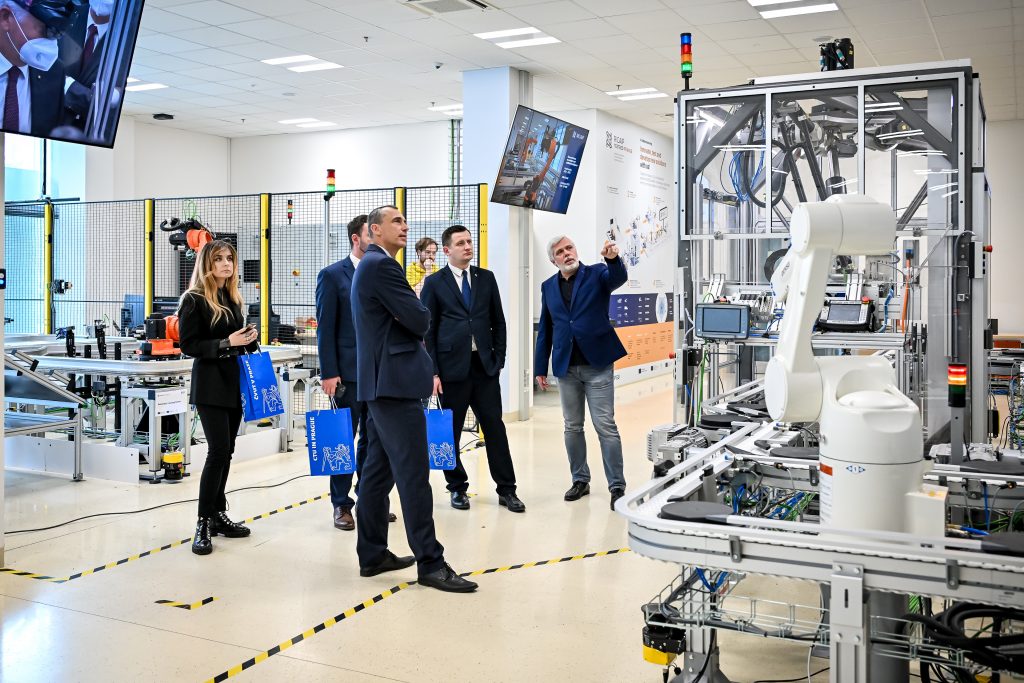
After the joint meeting with the CTU representatives, the Latvian visit headed to the RICAIP Testbed Prague. Mr. Jurgis Miezainis expressed great interest in how Testbed and its research infrastructure actually helps companies in implementing Industry 4.0 ideas and AI technologies into their industrial production. The RICAIP Center was introduced as the significant element for building both national and international ecosystem focusing on supporting the innovation and industrial transformation towards higher competitivness and sustainability of the Czech and European economy. For that purpose, the concept of services and assistance within a so-called “five-step innovation cycle” has been implemented recently – at the national level in cooperation with the ecosystem around the National Centre for Industry 4.0 (NCP4.0). In particular, the Test Before Invest support for SMEs within the framework of tools and projects such as EDIH (European Digital Innovation Hub scheme, namely through EDIH CTU), TEF (Testing and Experimentation Facilities in Manufacturing, namely through AI-MATTERS) and other synergic projects such as AIRISE were highlighted.
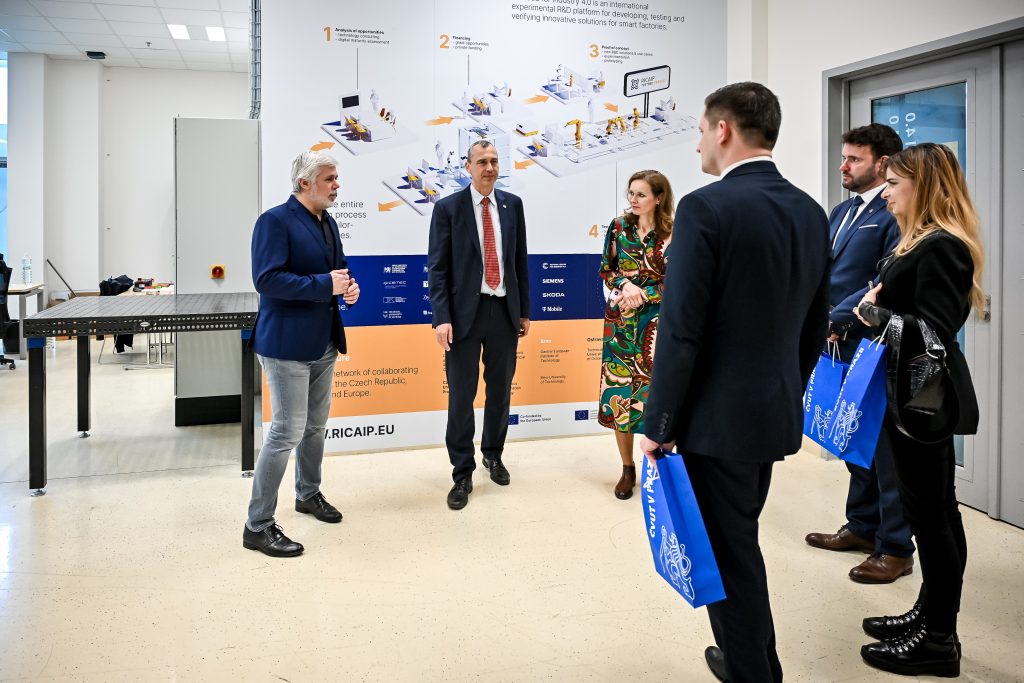
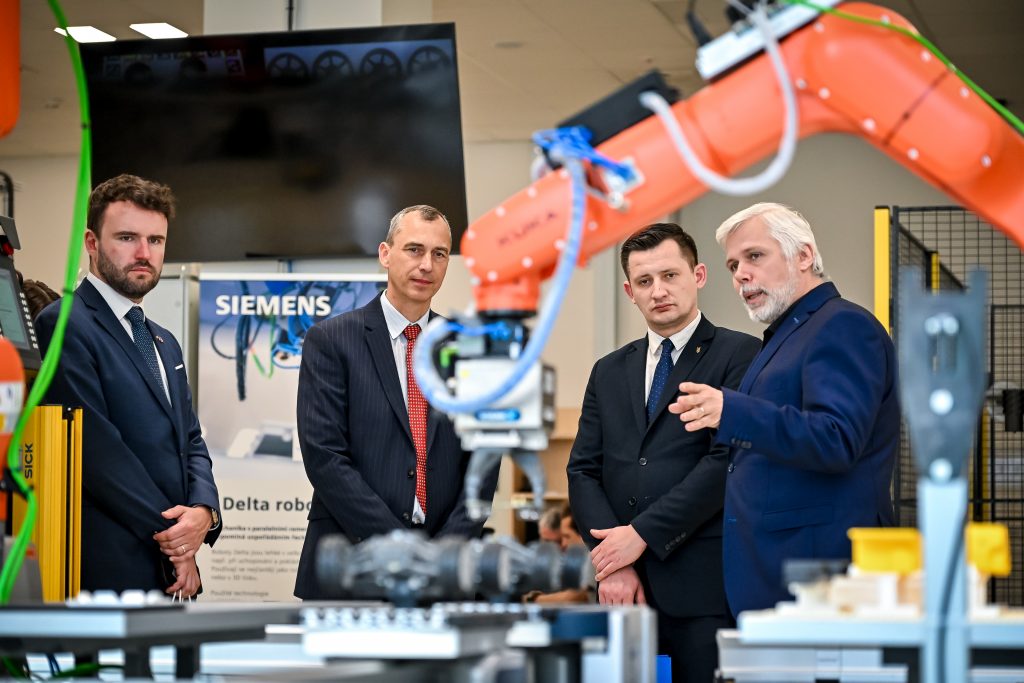
Pavel Burget, Director of RICAIP Testbed Prague, presented several industrial demonstrators to the Latvian delegation, using namely technologies such as flexible modular manufacturing, 5G, camera-based object detection and subsequent robot navigation for object grasping, and more.
A sustainability-driven project of robotic flexible production was showcased on two concrete examples dealing with the car battery disassembly and retrofitting – both as a mobile modular robotic cell with two robots handling a model of car battery as well as use-case with real batteries for electric cars, including the concept of virtual commissioning of the entire robotic line with the involvement of the production control system.
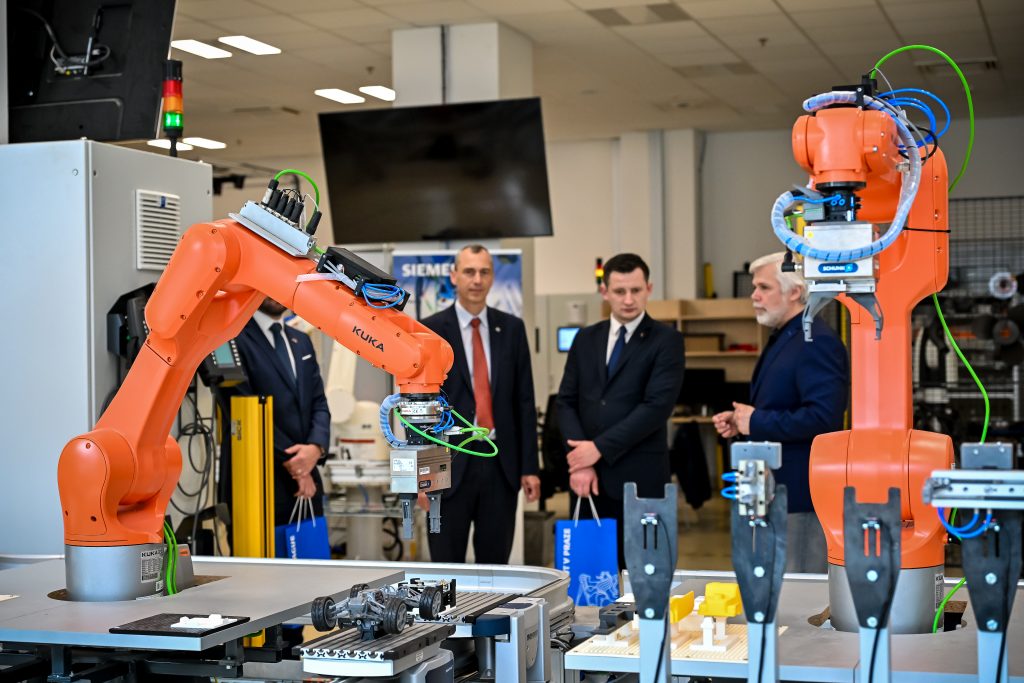
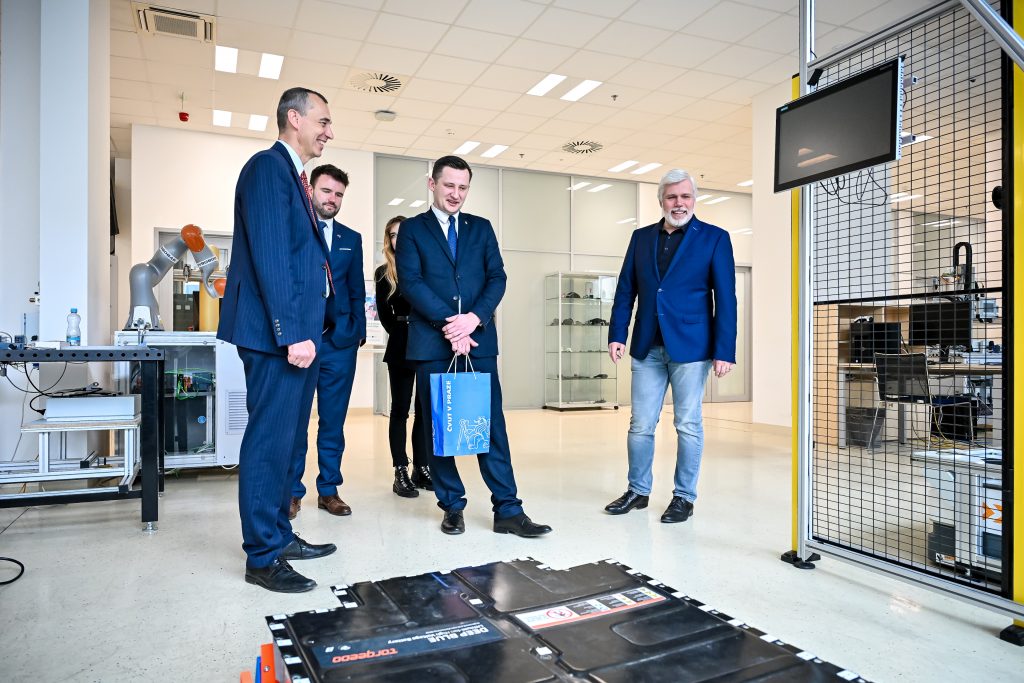
They were also intrigued by the robotic tap project and the ongoing research into new AI-based algorithms that will allow the robotic tap to be deployed for testing in a real-world environment.
Another topic of the meeting was the 5G network and what experience CIIRC CTU and RICAIP testbeds have with the use of industrial 5G network in production (technology for 5G networks is an area where Latvian companies are actively involved).
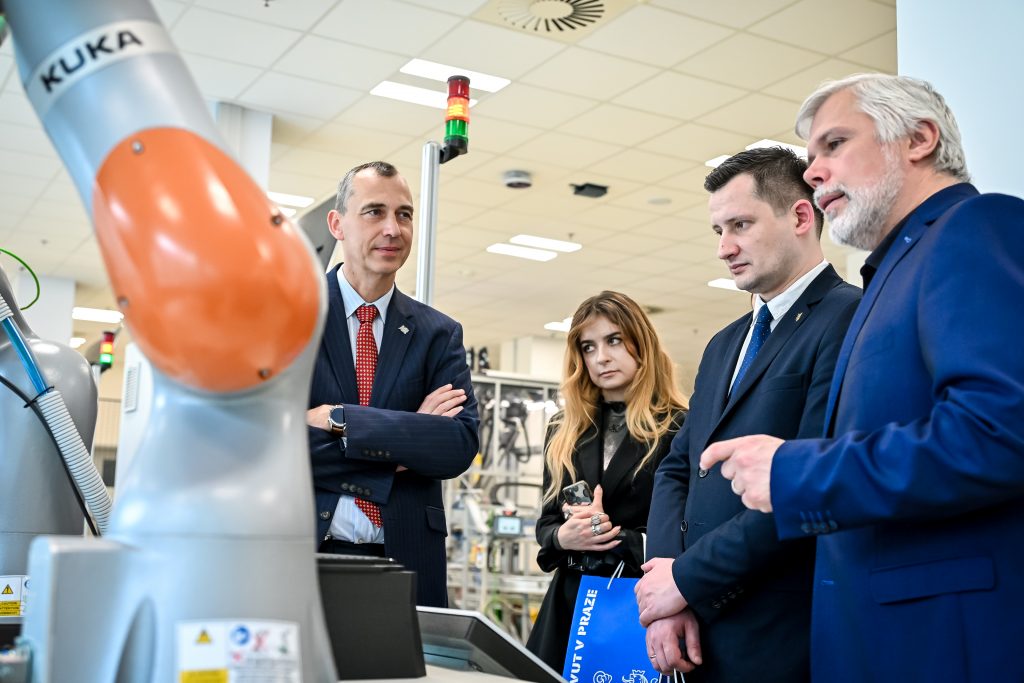
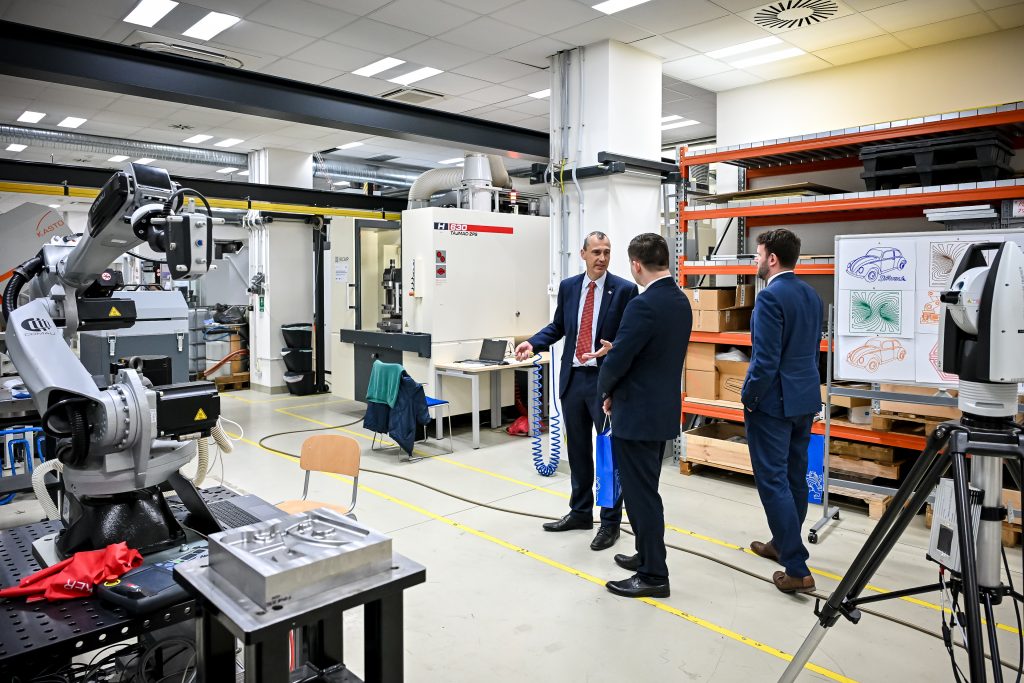
Photo: www.macciani.cz/ Embassy of Latvia
